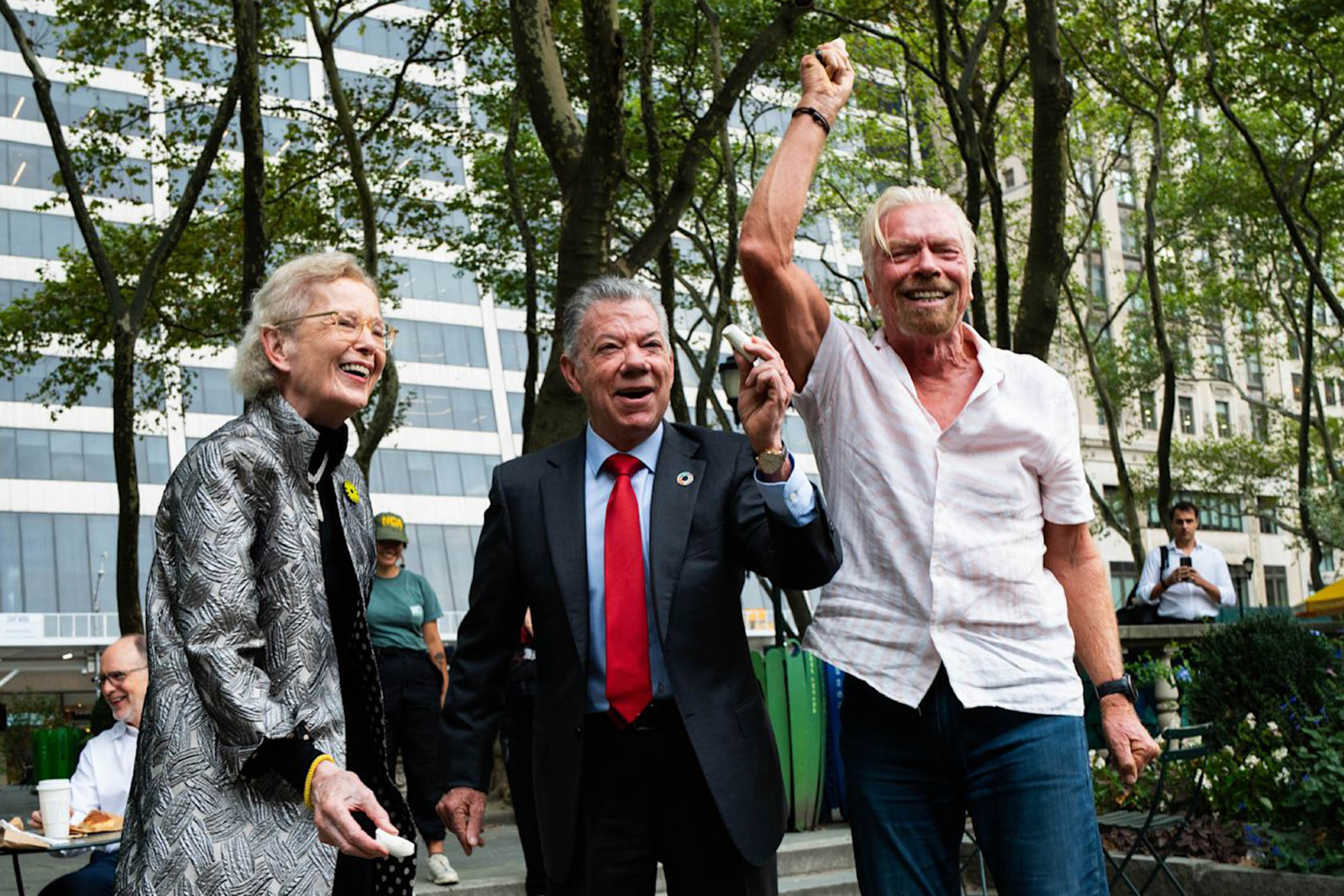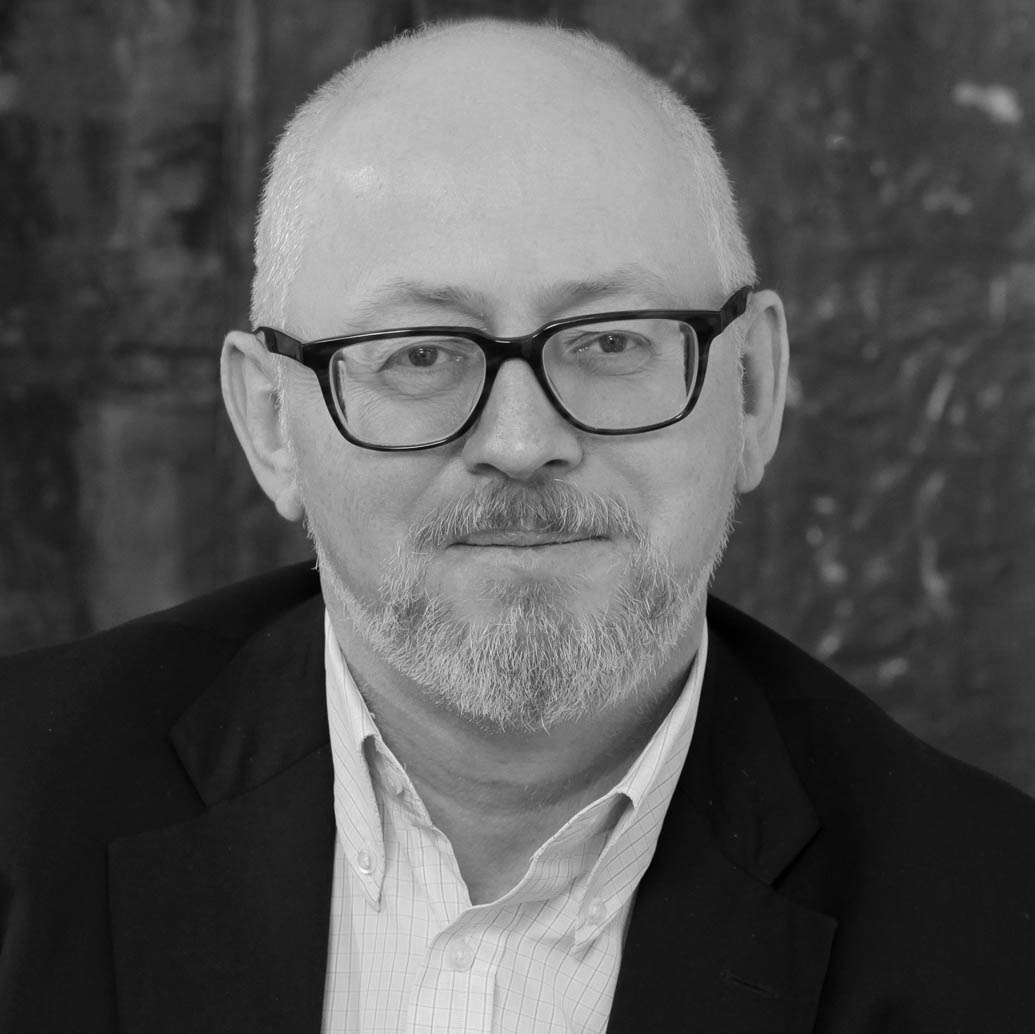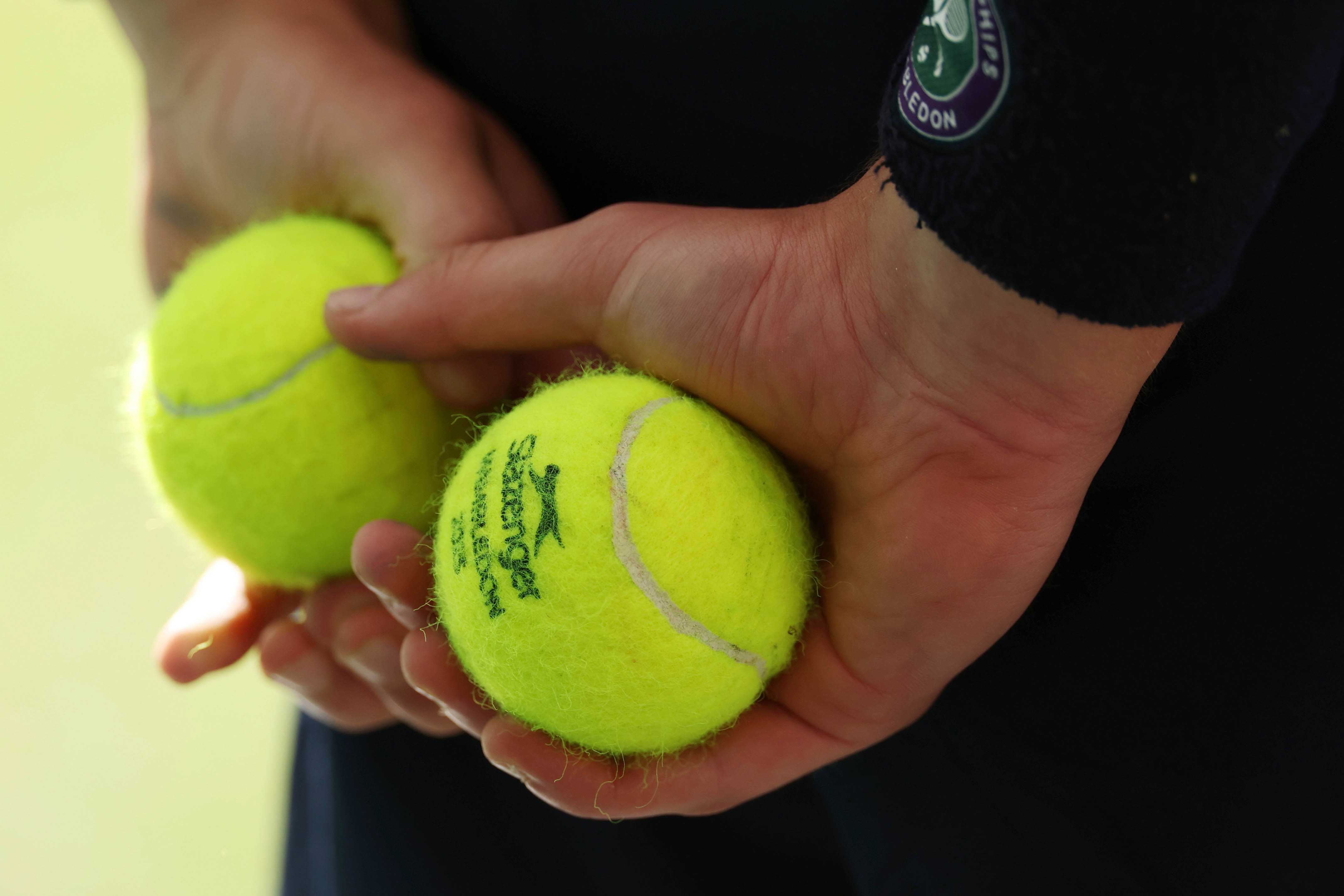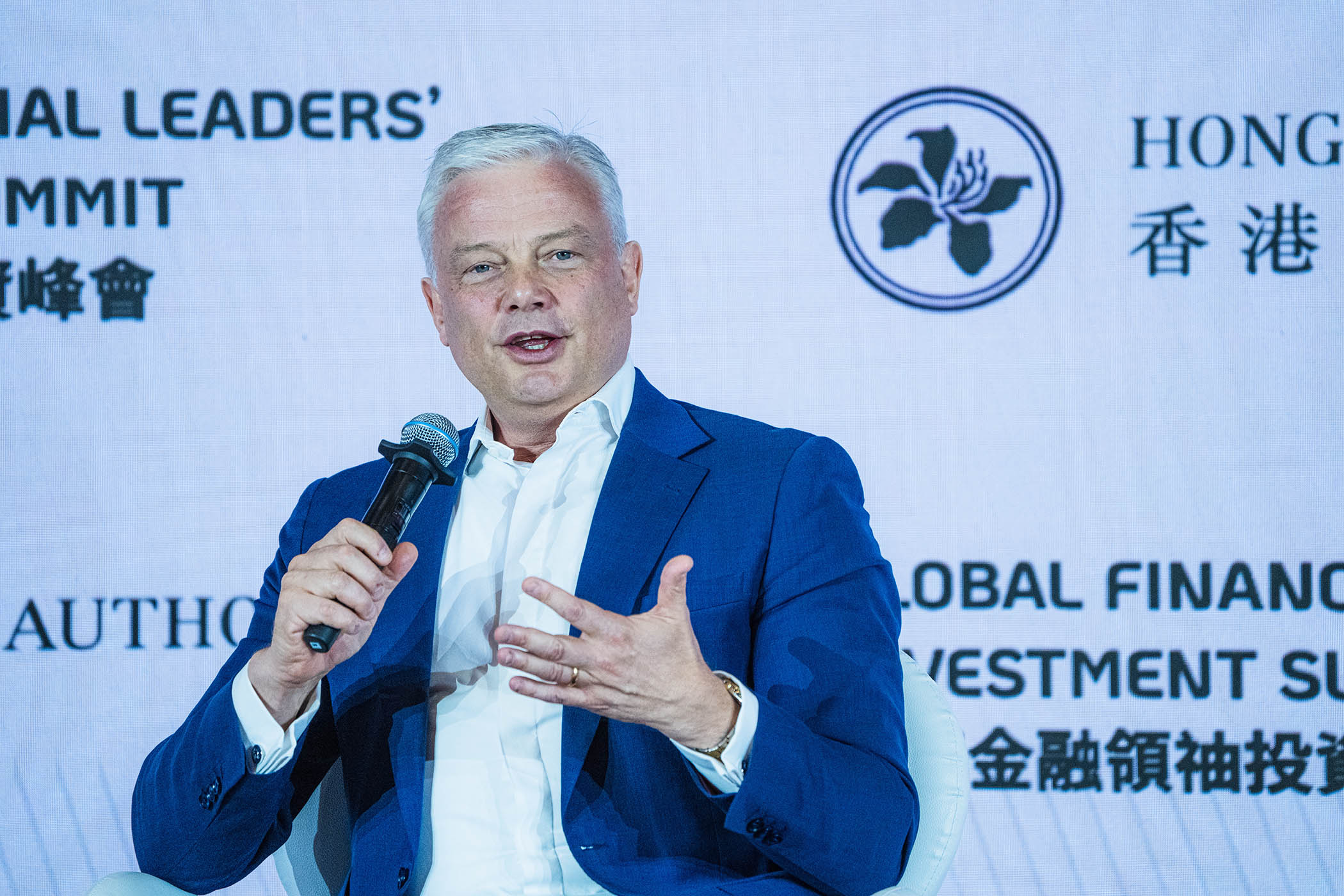You can’t keep Sir Richard Branson down. The irrepressible entrepreneur, now 75, was one of the most visible company bosses in New York at climate week, despite a nasty gash on his face. This was caused, he says, by running into a glass door at his Virgin Hotel as he rushed to tell colleagues about Holganix, an exciting new sustainable alternative to fertiliser he had just been introduced to.
While most other corporate chiefs are keeping quiet this year about what Donald Trump told the UN general assembly is a “hoax”, Sir Richard was in town for the launch of a new report highlighting the increasing reality of climate change. This was published by the Planetary Guardians, a group of scientists, Indigenous leaders and other great and good (including Mary Robinson, Jane Goodall and marine biologist Sylvia Earle), an initiative being incubated by Virgin Unite, his company’s charitable arm.
According to the Planetary Health Check report, the world has now breached seven of the nine “planetary boundaries” experts say it is essential not to cross if disaster is to be averted. The seventh boundary, which was crossed this year, is high-levels of ocean acidity.
Sir Richard also gathered leading investors in climate finance, to highlight promising investment strategies that can make money by tackling the causes of climate change, such as through decarbonisation. He and the Planetary Guardians are championing a new fund which they hope will be agreed at the climate Cop in Brazil in November. This aims to attract vast amounts of private capital to protect three big geographical basins – in the Amazon, Congo and South-east Asia – that together contain 80% of the world’s remaining rainforests and two-thirds of its biodiversity. This has the very practical advantage of not needing US government support to get started.
Newsletters
Choose the newsletters you want to receive
View more
For information about how The Observer protects your data, read our Privacy Policy



